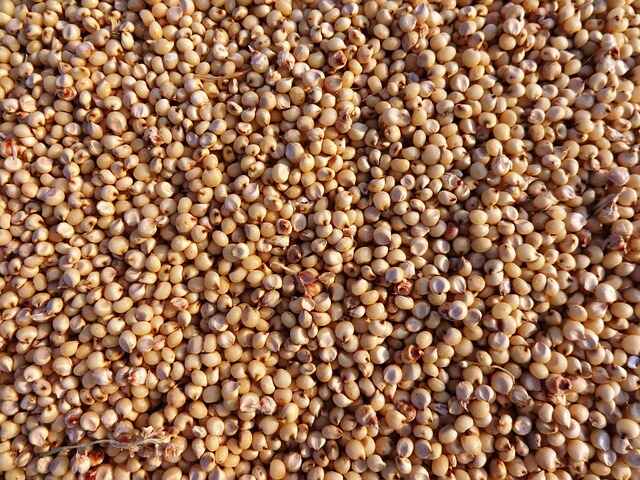Cereals are the staple food of India and have been consumed for thousands of years. They form a significant part of our diet and provide the necessary carbohydrates, proteins, and other essential nutrients required for the body’s proper functioning. In recent years, there has been a significant shift in the way people consume cereals. Traditional grains like wheat and rice are slowly being replaced by newer, healthier grains that offer more nutritional value. Sorghum is one such grain that has gained popularity in the Indian market due to its numerous health benefits. Sorghum is a gluten-free, nutrient-rich cereal that has been grown for thousands of years and is now becoming increasingly popular worldwide.
Sorghum is gaining popularity in recent times, as it is a gluten-free grain and is suitable for people with gluten intolerance. Moreover, sorghum has several nutritional benefits that make it a healthy alternative to traditional cereals like wheat and rice.
Also, Read All About Vegan Diet: A Detailed Guide On Veganism For Beginners!!!
Nutrition Profile: The Nutrients Present in Sorghum
Let’s have a look at the nutrition profile per 100g of Sorghum as provided by Biodiversity for Food and Nutrition (Source):
- 1. Energy 359 kcal
- 2. Protein 8.43 g
- 3. Total lipid (fat) 3.34 g
- 4. Ash 1.32 g
- 5. Carbohydrate 76.6 g
- 6. Total Dietary Fiber 6.6 g
- 7. Calcium, Ca 12 mg
- 8. Iron, Fe 3.14 mg
- 9. Phosphorus, P 278 mg
- 10. Potassium, K 324 mg
- 11. Zinc, Zn 1.63 mg
- 12. Selenium, Se 12.2 µg
Sorghum is known by several names in different parts of India. Jowar is the most commonly used name for sorghum in Hindi-speaking regions, while Jonnalu is the term used in Telugu-speaking areas. Cholam is the name for sorghum in Tamil, and Jola is the name used in Kannada. In Marathi, sorghum is called Jwari, and in Gujarat, it is known as Kaapli.
Sorghum is known for its high nutritional value and has numerous health benefits :

RICH IN NUTRIENTS
Sorghum is a nutrient-rich grain that provides several essential vitamins and minerals. It is a good source of B vitamins such as thiamine, riboflavin, niacin, and B6, which help convert food into energy and keep the nervous system healthy. Sorghum also contains minerals like iron, magnesium, and phosphorus, which are crucial for bone health and proper muscle function. Additionally, sorghum is rich in antioxidants such as phenolic compounds, which help protect the body against cellular damage caused by free radicals.
HELPS MANAGE BLOOD SUGAR LEVELS
Sorghum is a low glycemic index food, which means it releases sugar into the bloodstream slowly, helping to maintain steady blood sugar levels. This property makes it an excellent grain choice for people with diabetes. The soluble fiber present in sorghum helps slow down the absorption of glucose in the bloodstream, preventing spikes in blood sugar levels. This can help reduce the risk of developing diabetes and manage the symptoms of the condition in people who already have it. Additionally, sorghum contains compounds that help increase insulin sensitivity, which can also contribute to better blood sugar management.

BOOSTS DIGESTIVE HEALTH
Sorghum is rich in dietary fiber, which promotes good digestive health. It helps prevent constipation by aiding in the smooth movement of food through the digestive tract. Fiber also acts as a prebiotic, promoting the growth of healthy gut bacteria, which in turn enhances gut health. In addition to fiber, sorghum contains resistant starch, which is not digested in the small intestine but is instead fermented in the colon, leading to the production of short-chain fatty acids that promote gut health. Regular consumption of sorghum can help maintain a healthy digestive system.
GOOD FOR BONE HEALTH
Sorghum is rich in important minerals such as calcium, magnesium, and phosphorus, which are essential for maintaining strong and healthy bones. These minerals play a crucial role in bone formation, growth, and repair. It also contains a high amount of protein, which is necessary for the formation of collagen, a protein that forms the structure of bones. Regular consumption of sorghum can help prevent bone-related diseases such as osteoporosis and maintain healthy bone density.
PROMOTES HEART HEALTH
It is a rich source of antioxidants, particularly flavonoids, which have been linked to lower risks of heart disease. Research shows that sorghum can lower LDL cholesterol levels and triglycerides in the blood, which are both risk factors for heart disease. Sorghum also contains magnesium, potassium, and fiber, which are known to support heart health.
GLUTEN-FREE
It is a naturally gluten-free grain, making it an ideal choice for people with gluten intolerance or celiac disease. Gluten is a protein found in wheat, barley, and rye that can cause digestive issues and other health problems in people with gluten sensitivity. It is a great alternative to these grains and can be used in a variety of recipes, from baked goods to porridge. It is also high in fiber, which can help promote digestive health and regulate blood sugar levels. Overall, sorghum is a nutritious and versatile grain that is suitable for a variety of dietary needs.
In conclusion, it is a highly nutritious and versatile cereal that is widely cultivated in Asia, Africa, and parts of the Americas. Sorghum is rich in nutrients, helps manage blood sugar levels, boosts digestive health, is good for bone health, promotes heart health, and is gluten-free.
Also, Read Health Benefits Of Lemongrass, Medicinal Uses & Side Effects





